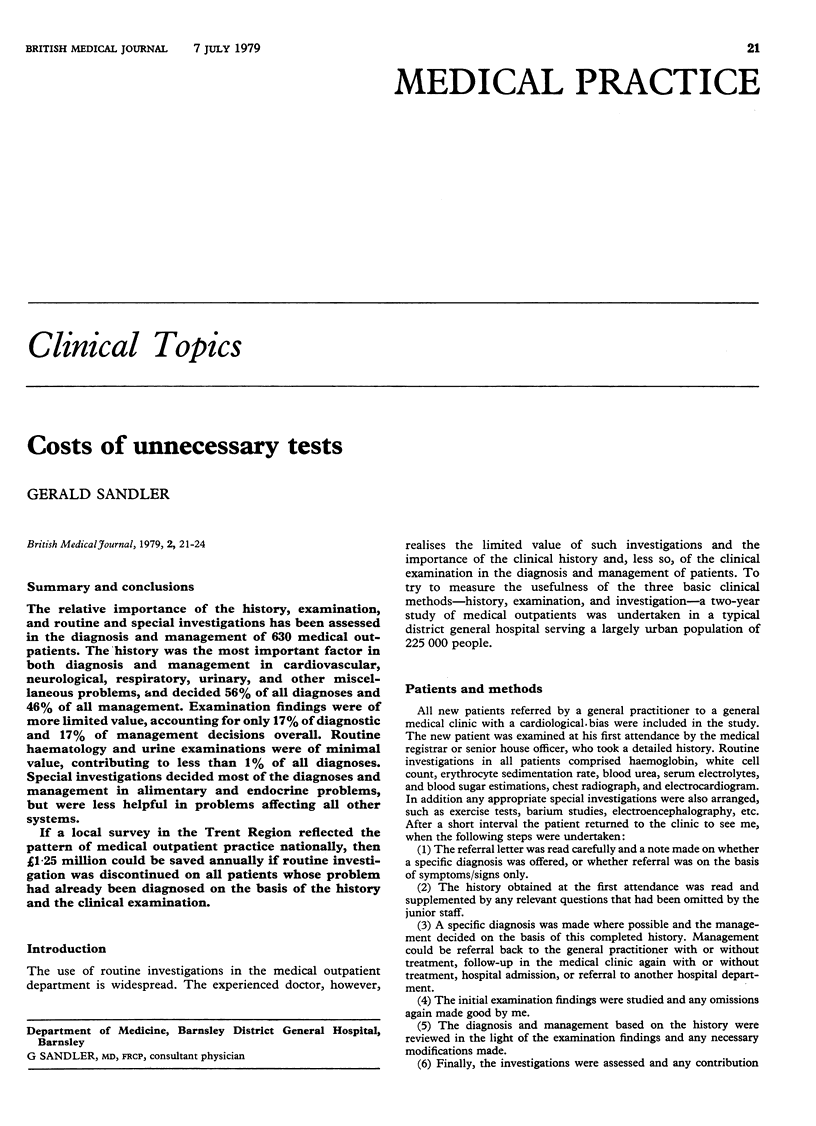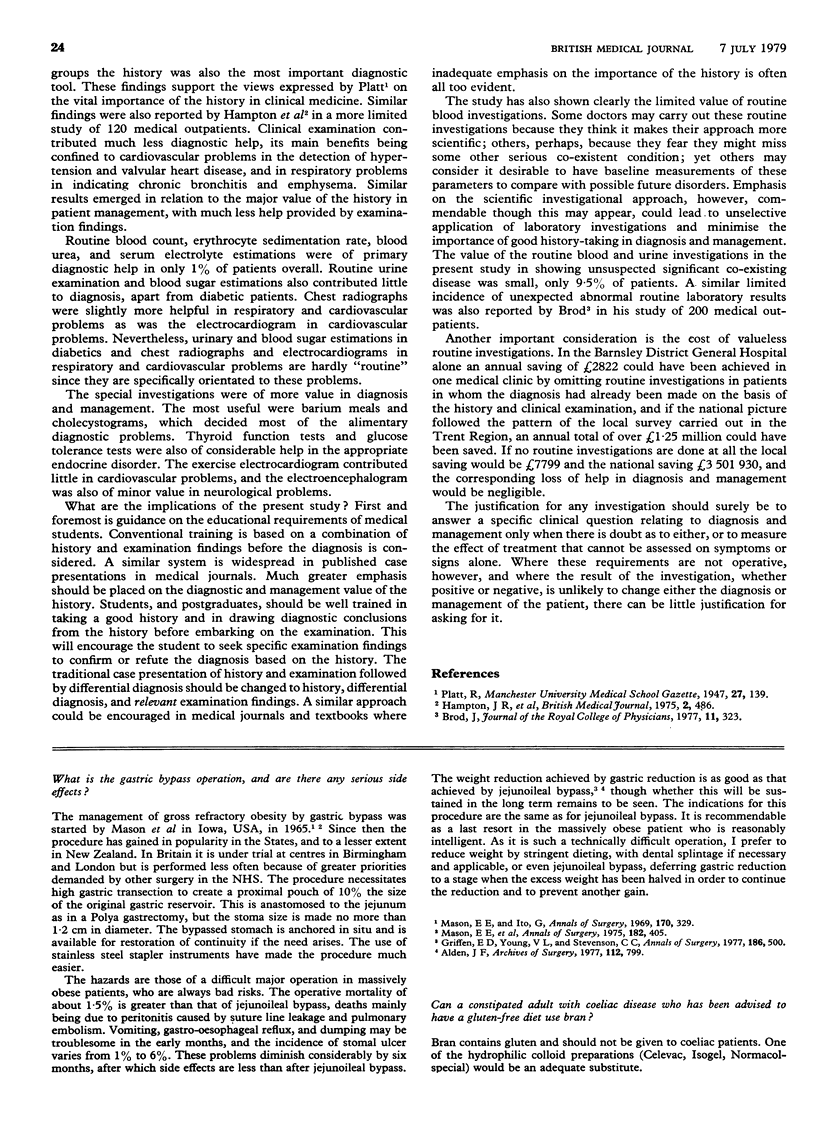Abstract
The relative importance of the history, examination, and routine and special investigations has been assessed in the diagnosis and management of 630 medical outpatients. The history was the most important factor in both diagnosis and management in cardiovascular, neurological, respiratory, urinary, and other miscellaneous problems, and decided 56% of all diagnoses and 46% of all management. Examination findings were of more limited value, accounting for only 17% of diagnostic and 17% of management decisions overall. Routine haematology and urine examinations were of minimal value, contributing to less than 1% of all diagnoses. Special investigations decided most of the diagnoses and management in alimentary and endocrine problems, but were less helpful in problems affecting all other systems. If a local survey in the Trent Region reflected the pattern of medical outpatient practice nationally, then pounds 1.25 million could be saved annually if routine investigation was discontinued on all patients whose problem had already been diagnosed on the basis of the history and the clinical examination.
Full text
PDF



Selected References
These references are in PubMed. This may not be the complete list of references from this article.
- Brod J. The rational basis of diagnosis in internal medicine. J R Coll Physicians Lond. 1977 Jul;11(4):323–334. [PMC free article] [PubMed] [Google Scholar]
- Griffen W. O., Jr, Young V. L., Stevenson C. C. A prospective comparison of gastric and jejunoileal bypass procedures for morbid obesity. Ann Surg. 1977 Oct;186(4):500–509. doi: 10.1097/00000658-197710000-00012. [DOI] [PMC free article] [PubMed] [Google Scholar]
- Mason E. E., Ito C. Gastric bypass. Ann Surg. 1969 Sep;170(3):329–339. doi: 10.1097/00000658-196909010-00003. [DOI] [PMC free article] [PubMed] [Google Scholar]


